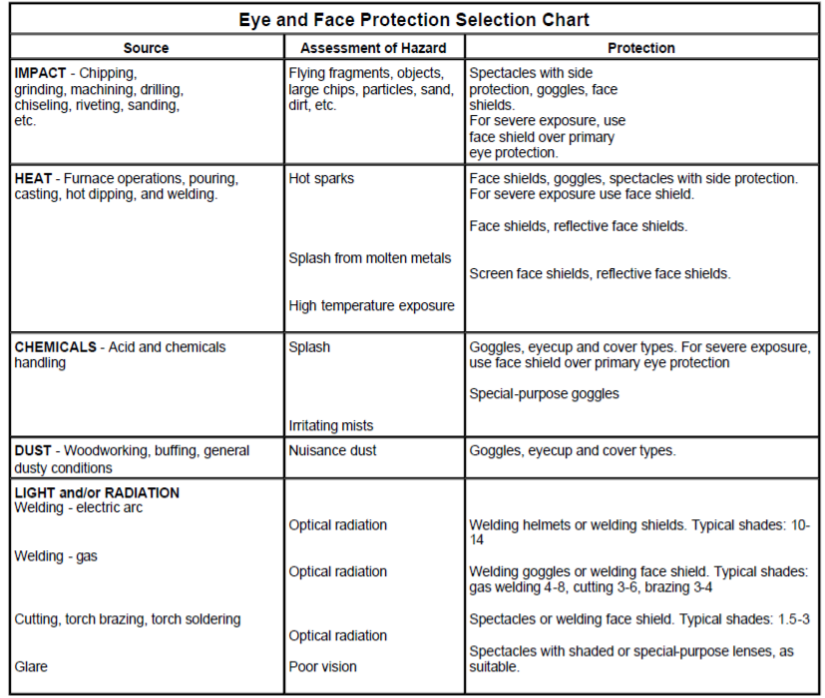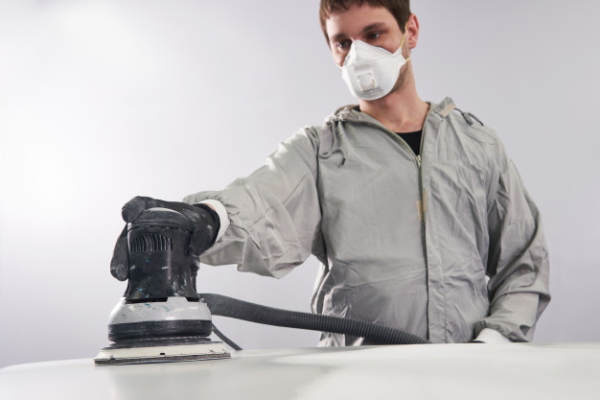OSHA Requirements for Auto Shops:
Listed below are the OSHA requirements and safety topics relevant to auto shops, which all of our members should have a part of their company safety program.
Hazardous Communication:
Hazard Communication Standard (29 CFR 1910.1200): All businesses must store SDSs (formally MSDS) for each hazardous chemical in the shop in a known and easily accessible location. SDSs contain valuable information about health hazards, environmental and disposal concerns, and protective measures associated with each chemical.
Personal Protective Equipment (PPE):
General Requirements (29 CFR 1910.132): Employers are responsible for assessing workplace hazards and identifying, providing, and training employees on the use and maintenance of PPE that corresponds to the nature of their work.
- Not only must employers provide appropriate PPE, but they must also enforce that it is used. If someone gets hurt on the job and was not using correct or appropriate PPE, your business may be held liable and become subject to OSHA enforcement.
Protection for Eyes and Face (29 CFR 1910.133): Based on the task, workers may need protection against chemical splashes, vapors or mists, flying sparks or particles, or harmful glare. Protective eyewear should fit properly and be appropriate for the work.

Protection for Hands (29 CFR 1910.138): Gloves are needed for many tasks in auto shops. Here are some examples of different gloves and their uses:
- Leather gloves are required for welding because they protect against sparks, heat, and sharp objects.
- Shop owners must provide their workers with appropriate gloves to protect them from solvents. Glove varieties include butyl, neoprene, or nitrile gloves and it is up to you to read the SDS for each product since these gloves do not protect against all hazardous chemicals.
Protection for Hearing: The OSHA enforceable permissible exposure level over an eight-hour workday is 90 decibels (dB). The limit for 15 minutes is 115 dB (29 CFR 1910.95). If workers are exposed to a loud environment, provide earplugs or other ear protection. Note that a hearing conservation program is required whenever employee noise exposures equal or exceed 85 decibels over an eight-hour workday.
Protection for Paint Technicians: Auto body shops require additional skin protection (for the head, face, and arms) for paint technicians during spray painting activities to protect against chemical exposures. These include protecting all exposed skin from harm with either a chemical resistant full-body suit or other no static discharge producing outer clothing. Also, painters should protect their head and face with a hood and goggles – all exposed skin must be protected.
Recent Posts
The U.S. Department of Labor Announces Proposed Rule To Protect Indoor, Outdoor Workers From Extreme Heat
The U.S. Department of Labor has proposed a new rule aimed at protecting workers from extreme heat hazards. This initiative seeks to safeguard approximately 36 [...]
Supreme Court Overturns Chevron Deference: What It Means for Workplace Safety and Regulation
The landscape of federal regulation is set for a seismic shift following a recent Supreme Court decision. On June 28, in Loper Bright Enterprises, et [...]
Navigating the Compliance Maze: How NARFA Simplifies Employee Benefits for Automotive and Trade Industries
In today's complex regulatory environment, businesses in the automotive, roads, fuel, and related industries face unprecedented challenges in managing employee benefits. Recent studies show that [...]




